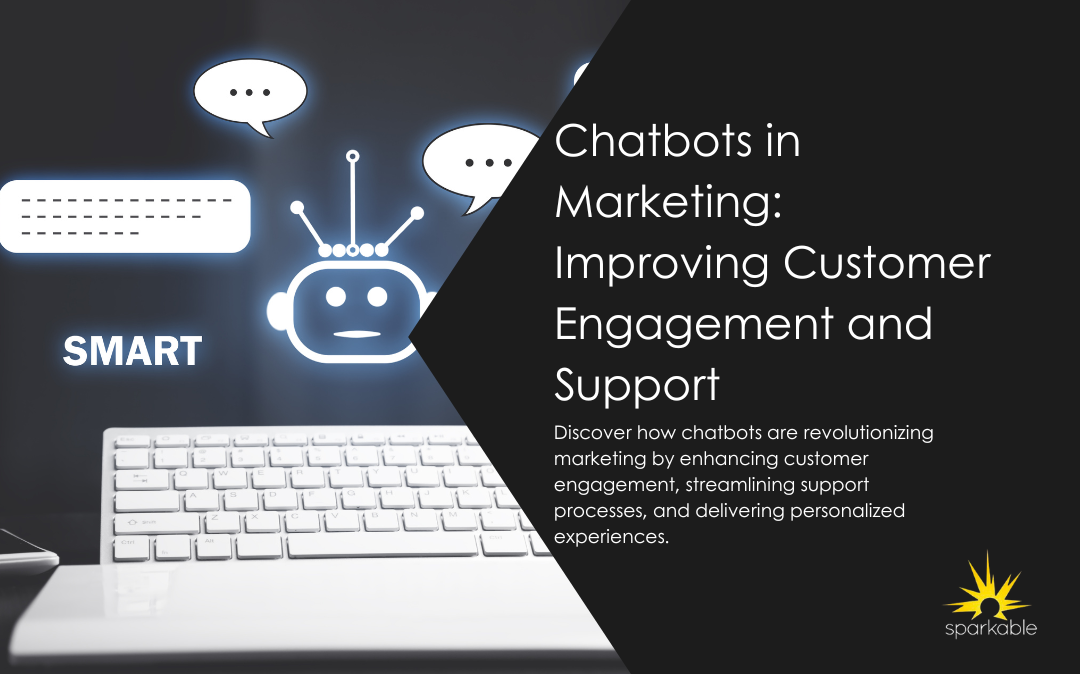In today’s digital age, businesses are constantly seeking innovative ways to enhance customer engagement and streamline support processes. One technology that has gained significant traction is chatbots. These AI-powered tools are revolutionizing how brands interact with their audience, offering personalized experiences and efficient customer service. Here’s how chatbots are transforming marketing strategies and improving overall customer satisfaction.
Understanding Chatbots
Chatbots are software applications designed to simulate human conversation via text or voice. They use Natural Language Processing (NLP) and machine learning algorithms to understand and respond to user queries in real-time. This capability allows businesses to provide immediate responses, 24/7, without the need for human intervention.
Enhancing Customer Engagement
- Instant Response: Chatbots enable businesses to respond to customer inquiries instantly, improving response times and enhancing customer satisfaction.
- Personalization: Through data analysis and machine learning, chatbots can deliver personalized recommendations and content based on user preferences and behaviors.
- Lead Generation: Chatbots can qualify leads by engaging visitors on websites or social media platforms, gathering relevant information, and guiding them through the sales funnel.
Streamlining Customer Support
- 24/7 Availability: Unlike traditional customer support channels with limited hours, chatbots are available round-the-clock, providing instant assistance to customers in different time zones.
- Efficiency: Chatbots handle routine inquiries and frequently asked questions (FAQs), freeing up human agents to focus on more complex issues that require human empathy and problem-solving skills.
- Cost-Effective: Implementing chatbots reduces operational costs associated with customer support, such as hiring and training additional staff, while improving efficiency and scalability.
Applications in Marketing
- Customer Service Automation: Chatbots can automate responses to common customer service queries, such as order tracking, product information, and troubleshooting, ensuring consistent and accurate information delivery.
- Interactive Marketing Campaigns: Chatbots enhance interactive marketing campaigns by engaging users in conversations, providing personalized recommendations, and collecting feedback in real-time.
- E-commerce Assistance: In the e-commerce sector, chatbots assist customers with product recommendations, order placements, and post-purchase support, enhancing the overall shopping experience.
Best Practices for Implementing Chatbots
- Define Objectives: Clearly define the goals and objectives of deploying chatbots, whether it’s improving customer service, increasing sales conversions, or enhancing brand engagement.
- Natural Language Understanding: Ensure chatbots are equipped with robust NLP capabilities to understand and respond to user queries accurately.
- Human Handoff: Implement a seamless transition to human agents for complex inquiries or when emotional support is needed, maintaining a human touch in customer interactions.
- Continuous Improvement: Regularly analyze chatbot performance, gather user feedback, and update algorithms to improve functionality and user experience over time.
Future Trends
- Voice-Activated Chatbots: With the rise of smart speakers and virtual assistants, voice-activated chatbots are becoming more prevalent, offering hands-free customer interactions.
- AI Integration: Advancements in AI technologies will enhance chatbots’ ability to handle complex queries, predict customer behavior, and deliver hyper-personalized experiences.
- Omni-channel Integration: Chatbots will seamlessly integrate across multiple channels, including websites, social media platforms, and messaging apps, providing a unified customer experience.
Chatbots are transforming the landscape of marketing and customer service by enhancing engagement, streamlining support processes, and driving operational efficiency. As businesses continue to embrace AI technologies, chatbots will play a pivotal role in delivering seamless, personalized experiences that meet the evolving expectations of modern consumers.
By leveraging chatbots effectively, businesses can not only improve customer satisfaction but also gain a competitive edge in the digital marketplace.
Stay tuned as chatbots evolve to redefine customer interactions and drive business growth in the years to come.


Recent Comments